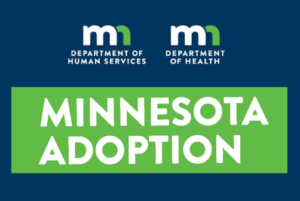Foster care is a temporary arrangement for children whose parents are struggling and are unable to take care of them. The primary purpose of foster care is to support the goal of reunification, when safe and possible.
There are a variety of reasons that children’s family situations come to the attention of a child welfare agency. When possible, child welfare agencies will work with families to keep kids safe and meet their needs at home; unfortunately, sometimes that is not possible and it is necessary for kids to be placed in foster care. The reasons that children need out-of-home placement are often rooted in historical trauma and a lack of resources that can lead to issues such as parental drug abuse, poverty, allegations of neglect, and/or allegations of abuse.
When foster care is necessary, it is ideal for children to be placed with relatives or kin who know and care about them. When there is not a relative or kin placement option immediately available, children are placed in non-relative foster care. Being in a family setting provides youth in foster care with the support critical to their emotional health and well-being during a time where permanency options, with reunification being the ultimate goal, are explored. While not a permanency outcome, foster care has the potential to help children and youth in foster care create meaningful and lifelong connections with additional supportive adults.
The experience of being separated from their family of origin is a form of deep trauma that, when compounded with additional trauma history (that may include physical, sexual, and emotional abuse; neglect; and/or prenatal exposure), can factor into the development of special needs for children. Children with special needs are those who have, or are at risk of developing, physical or mental disabilities, and/or emotional or behavioral challenges. Many behaviors of children with special needs are coping and survival skills that developed over time. Their behaviors are responses to difficult situations that the children have experienced.
Sibling groups are disproportionately represented within the foster system and are designated as special needs due to the increased resources and efforts required to support their individual and combined care. Statutes and protections exist to support keeping siblings together and connected when safe and possible to do so.
Foster parents are as diverse as the children they care for. A foster parent may be of any race(s), religion, sexual orientation, single, married, or in a relationship, have children or not have children, rent or own their home. What they share is a concern for children and a commitment to help them through tough times. They provide critical temporary care and nurturing to children in crisis. In addition to the services received through their County and Tribal agencies, PPPC and PSS agencies provide additional programming and resources to support the care and wellbeing of foster parents.
Individuals who are interested in providing child foster care must attend foster parent orientation sessions offered by one of the 87 Minnesota County Social/Human Service divisions or a private child foster care agency licensed through the Minnesota Department of Children, Youth, and Families to provide foster care services. Providers will then need to complete the full licensing process with the entity they choose to work with to complete their foster care license. Foster parents working with one of the Tribal communities need to complete all Tribal licensing requirements.
Foster parents caring for children will receive a financial benefit calculated based on the age and needs of the child(ren) including what is required of the foster provider to meet the needs of the youth. Medical assistance is provided for foster children to meet the medical needs of the child. Additional funding sources to meet the child(ren)’s needs may be available.
Contact your local County or Tribal Agency or a private foster care agency to learn more about how to become a foster parent.
Key Resources:
DCYF Foster Care Fact Sheet
Steps to Become a Foster Parent
Counties and Tribes List
Foster Adopt MN: Foster Care 101
FAM Foster Care FAQs
FAM FosterEd Webinars
Children’s Home Foster Care Adoption Education Classes
Northstar Benefits Information

